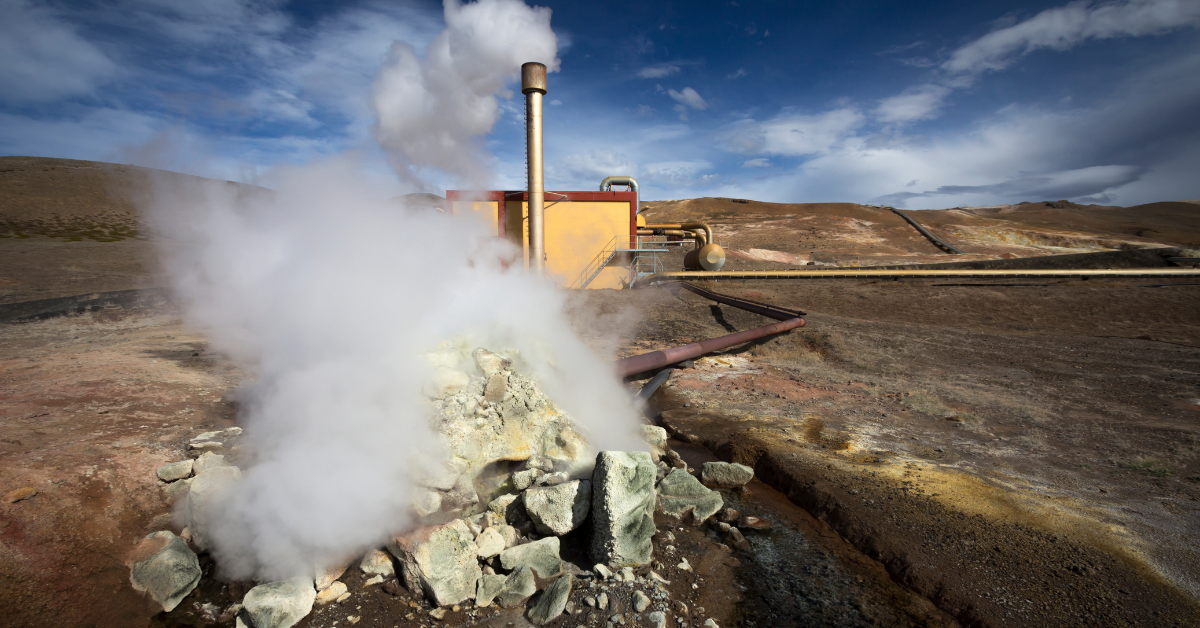
What happens when the lights go out?
Opinions expressed whether in general or in both on the performance of individual investments and in a wider economic context represent the views of the contributor at the time of preparation.
This piece provides a brief discussion about power shortages and how investors can seek to gain exposure to a theme that we expect only to grow in importance.
Imagine the situation: you are planning to cook a romantic meal for your partner; when you get home, the cooker and the lights do not work. Now imagine a second situation: your partner is in hospital awaiting a critical transplant operation; it is, however, not possible to conduct the operation because there is no electricity in the hospital. While the former scenario would be marginally irritating (and it would still be possible to eat cold food by candlelight), the latter could be a matter of life-or-death. Fortunately, neither is that common in the developed world. By contrast, in developing economies across the world power shortages occur with alarming regularity and have significant ramifications, relating most particularly to economic and political stability.
There is a structural shortage of power globally and the gap between demand and supply is set only to widen in coming years. Over the ten years to 2008, electricity consumption globally has grown by 3.8% p.a. according to the International Energy Agency (IEA), but the rate of growth has been significantly faster in non-OECD countries (7.4% p.a.) than has been the case in more developed, OECD countries (1.0% p.a.). The significant differential can be explained by the fact that, put simply, as an economy grows, so does demand for energy. This is a function not only of industrialisation, but also increasing consumption patterns with the broader population acquiring ‘basic’ products such as refrigerators and televisions for the first time. Analysis from Oxford Economics suggests that in countries where GDP is growing at more than 5% p.a., demand for power increasing at a logarithmic rate.
Burgeoning demand for power, therefore, does not look like it is going to dissipate any time soon. The IEA forecasts global growth of 2.6% p.a. through to 2015 while Oxford Economics is more optimistic, assuming 4.0% p.a., with China’s future needs constituting the major difference. More importantly, however, Oxford Economics estimates that the number of people globally whose power consumption is growing faster than per capita GDP will have doubled between 2000 and 2015. Expressed numerically, the leap is from 2.5bn to 5.0bn people over this fifteen year period; 5.0bn is equivalent to over 70% of the world’s population.
The much more contentious part of the equation, however, is supply. Power is a utility without which people, businesses and economies cannot operate; it is valued most when it is absent, or put another way, the opportunity cost of not having power is significant. Evidence abounds to support this contention. According to a study by the United Nations, the five worst-affected countries for power outages are (in order): Bangladesh, Nepal, Kosovo, Albania and Pakistan. Sub-Saharan Africa also appears heavily within the list, and Congo, Kenya, Nigeria and Uganda all feature in the UN’s top-twenty most affected. As recently as 1 May, a power outage in Karachi, Pakistan left 18m people without electricity for over three hours. The Beaconhouse Institute of Public Policy, a local think-tank, calculates that Pakistan’s power shortages in 2008 cost the country 2% of its GDP, or over $1bn in lost export earnings. A different study, cited in a recent New York Times article, suggested that for Uganda, the cost of power and fuel shortages was equivalent to as much as 5% of its GDP.
Notwithstanding burgeoning demand, two other factors also look likely to exacerbate the power shortage problem. First, power generators globally are ageing. According to the IEA, by 2015, some 25% of the world’s installed power generating capacity will be over forty years old, a reasonable proxy for the life of a permanent power plant. Plants in Africa are often older, some with lives of more than sixty years. Ageing equipment may already by operating close to or at full capacity with no scope for further loading and evidently with a higher likelihood of breaking down. Second, as has been well documented elsewhere, more extreme weather conditions (drought, flooding etc) are putting increased pressure on already scarce resources, creating a particular problem in those countries (for example, Kenya or Uganda) that use hydropower as a mechanism for generating their electricity.
Analysis from Oxford Economics concludes that the shortfall of global power generating capacity is set to rise from 70GW (i.e. 70 billion watts; a typical light bulb has a rating of 25-50 watts) to 600GW by 2015. Moreover, this power deficit is not just an emerging world issue. The US Government, for example, estimates that at least $80bn of GDP is lost annually owing to domestic power outages, while Ofgem, the UK energy regulator, calculates that up to £200bn ($325bn) needs to be spent to upgrade the UK’s electricity infrastructure. This implies that during the necessary impending energy investment/upgrade cycle there will be a potential competition for scarce resources between developed and developing economies.
For all governments the decision ultimately comes down to cost: both the actual physical cost of acquiring energy infrastructure and, as mentioned previously, the opportunity cost of not having electricity. These two factors dictate the extent to which countries’ energy portfolios comprise assets that are owned, leased or rented. In mature economies, the former option is typically favoured, while in emerging countries, the latter is a more logical course of action.
One indicator of pent-up demand is provided by ABB, a Swiss-Swedish multinational operating mainly in power and automation. At its last set of financial results it stated that it had seen its backlog for power equipment increase by 75% over the last three years, with the figure currently standing at close to $9bn. Peers General Electric and Siemens have also reported similarly robust trends. Another leading player in the field is Schneider Electric, a company that stands in the vanguard with regard to smart grid development. While not the specific discussion topic for this paper, smart grids represent a logical (interim) solution for developed economies, providing a form of enhancement to existing grid systems. Smart grids deliver electricity from suppliers to customers using digital technology, reducing energy costs, while increasing reliability and transparency. They also can help promote energy independence. The nascent smart grid industry is set only to grow in importance going forward.
For many developing economies, however, the ability to purchase new infrastructure (whether basic or smart) is simply not possible and rental is often the favoured option, particularly given opportunity cost considerations. UK-listed Aggreko dominates the global energy rental market. Following the acquisition of General Electrics’ energy rentals business in 2006 combined with healthy organic growth, Aggreko is now six times the size of its nearest competitor (Caterpillar) and serves customers in over 100 countries globally. The company has enjoyed annual double-digit revenue and earnings growth over the last five years and consensus sell-side estimates predict at least 7% p.a. growth over the following three years. Its market leadership looks set to endure owing to its scale, expertise in distribution and logistics and its strong end-user relationships.
Similar to the data deluge (discussed in the March edition of Helicon Thoughts), the structural imbalance between global power demand and supply does not look likely to diminish in the near-term. Given the importance attached to having a constant and reliable source of energy, investors should be mindful of this theme. The Helicon Fund’s favoured way of gaining exposure is via Aggreko.
Alexander Gunz, Fund Manager, Heptagon Capital
Disclaimers
The document is provided for information purposes only and does not constitute investment advice or any recommendation to buy, or sell or otherwise transact in any investments. The document is not intended to be construed as investment research. The contents of this document are based upon sources of information which Heptagon Capital LLP believes to be reliable. However, except to the extent required by applicable law or regulations, no guarantee, warranty or representation (express or implied) is given as to the accuracy or completeness of this document or its contents and, Heptagon Capital LLP, its affiliate companies and its members, officers, employees, agents and advisors do not accept any liability or responsibility in respect of the information or any views expressed herein. Opinions expressed whether in general or in both on the performance of individual investments and in a wider economic context represent the views of the contributor at the time of preparation. Where this document provides forward-looking statements which are based on relevant reports, current opinions, expectations and projections, actual results could differ materially from those anticipated in such statements. All opinions and estimates included in the document are subject to change without notice and Heptagon Capital LLP is under no obligation to update or revise information contained in the document. Furthermore, Heptagon Capital LLP disclaims any liability for any loss, damage, costs or expenses (including direct, indirect, special and consequential) howsoever arising which any person may suffer or incur as a result of viewing or utilising any information included in this document.
The document is protected by copyright. The use of any trademarks and logos displayed in the document without Heptagon Capital LLP’s prior written consent is strictly prohibited. Information in the document must not be published or redistributed without Heptagon Capital LLP’s prior written consent.
Heptagon Capital LLP, 63 Brook Street, Mayfair, London W1K 4HS
tel +44 20 7070 1800
email [email protected]
Partnership No: OC307355 Registered in England and Wales Authorised & Regulated by the Financial Conduct Authority
Heptagon Capital Limited is licenced to conduct investment services by the Malta Financial Services Authority.



